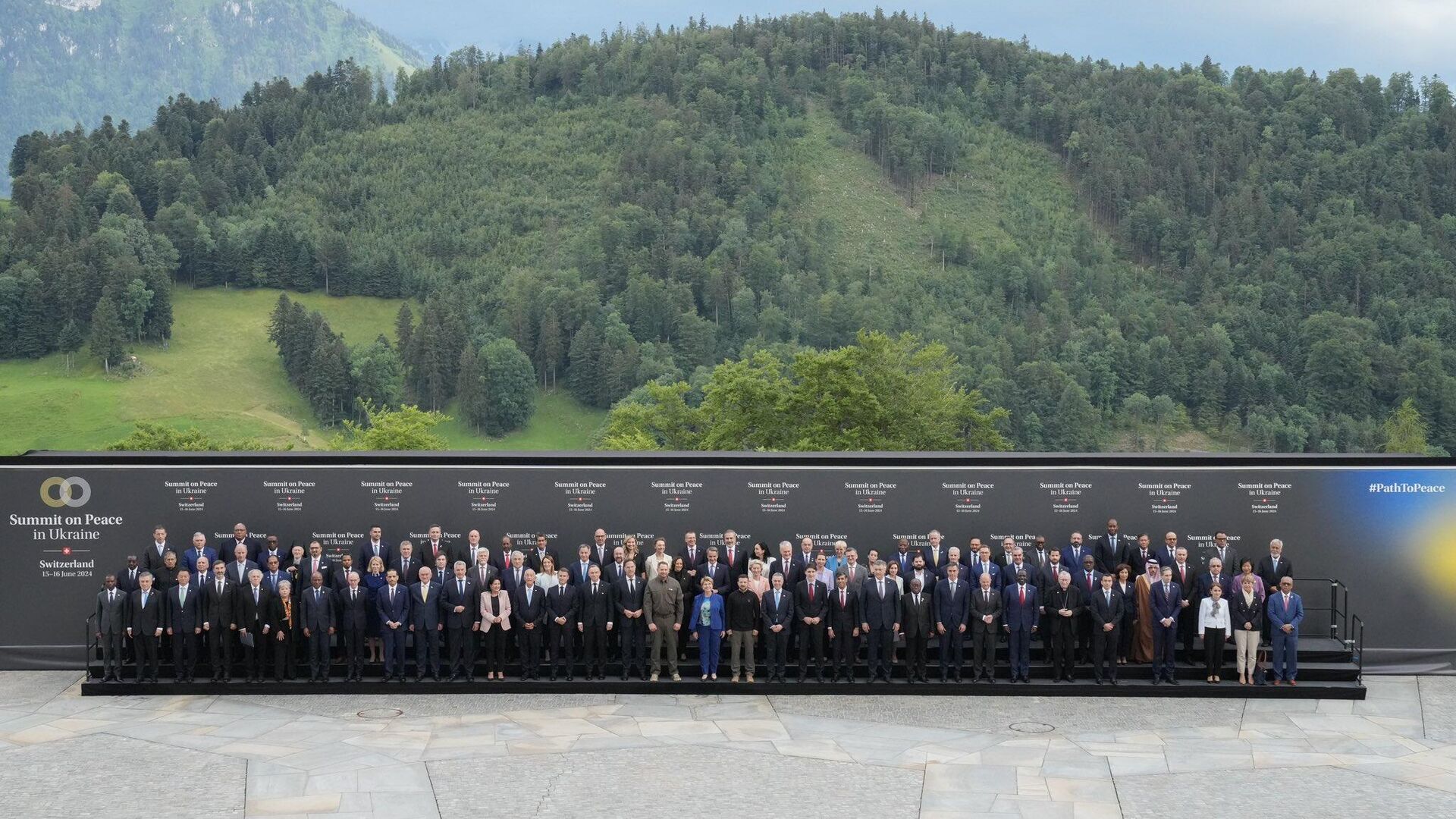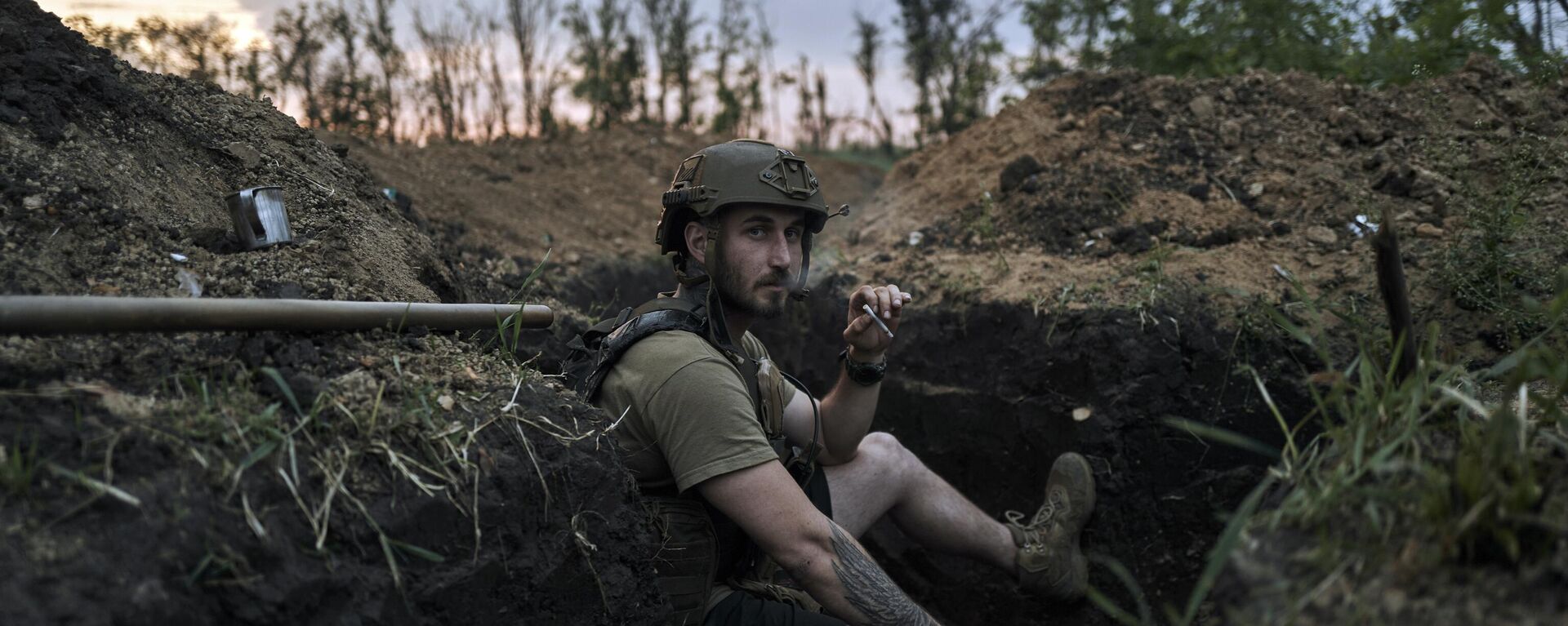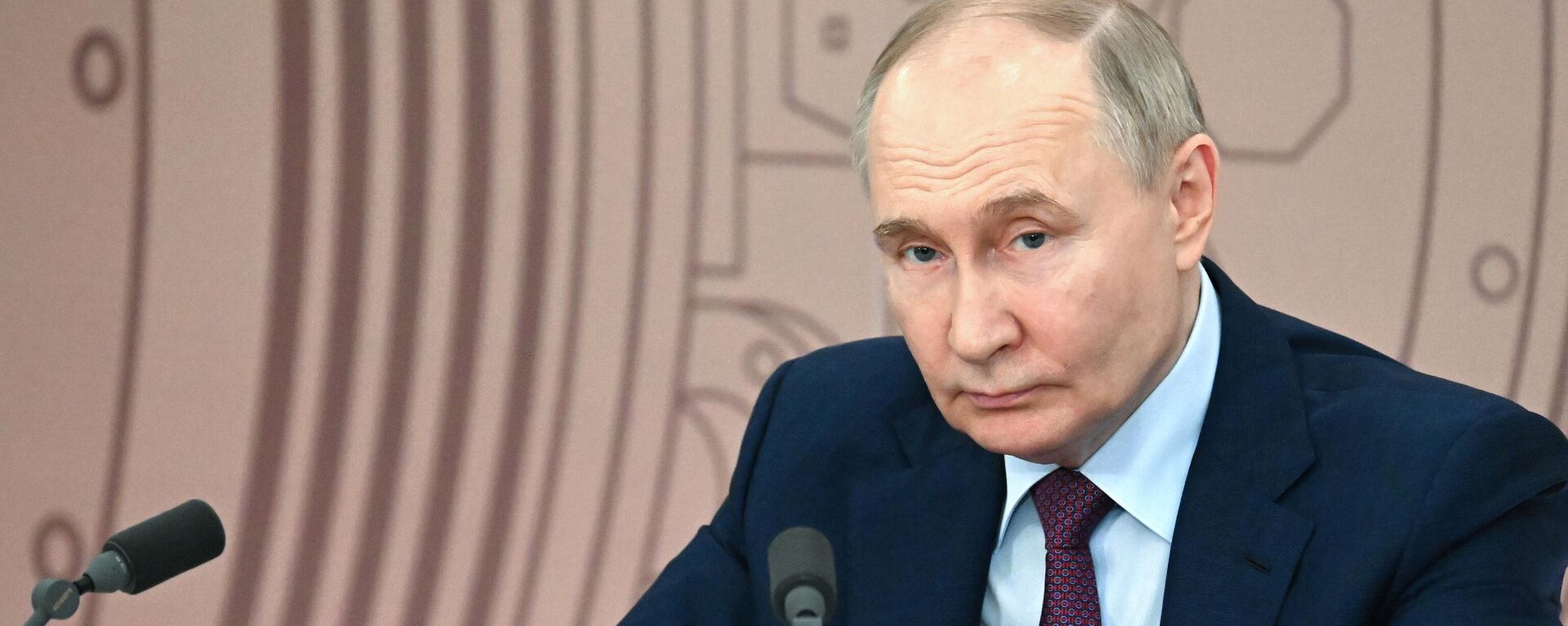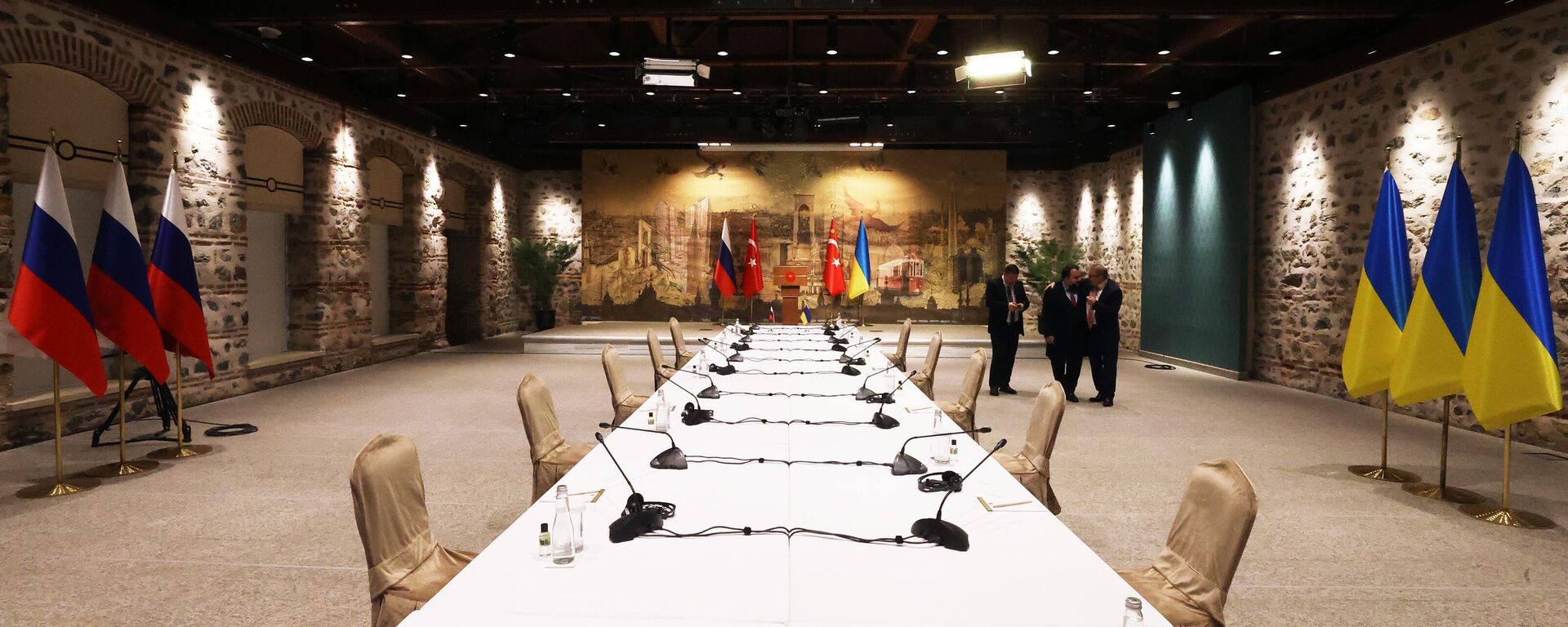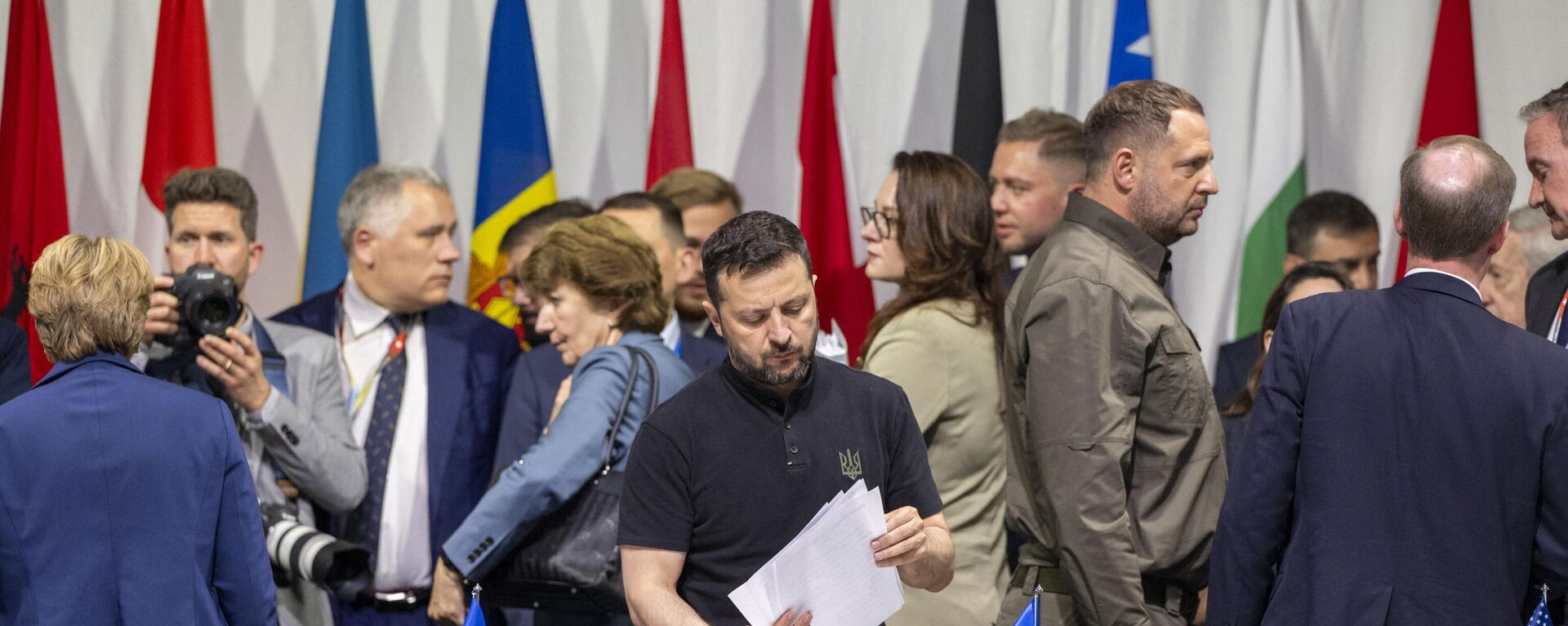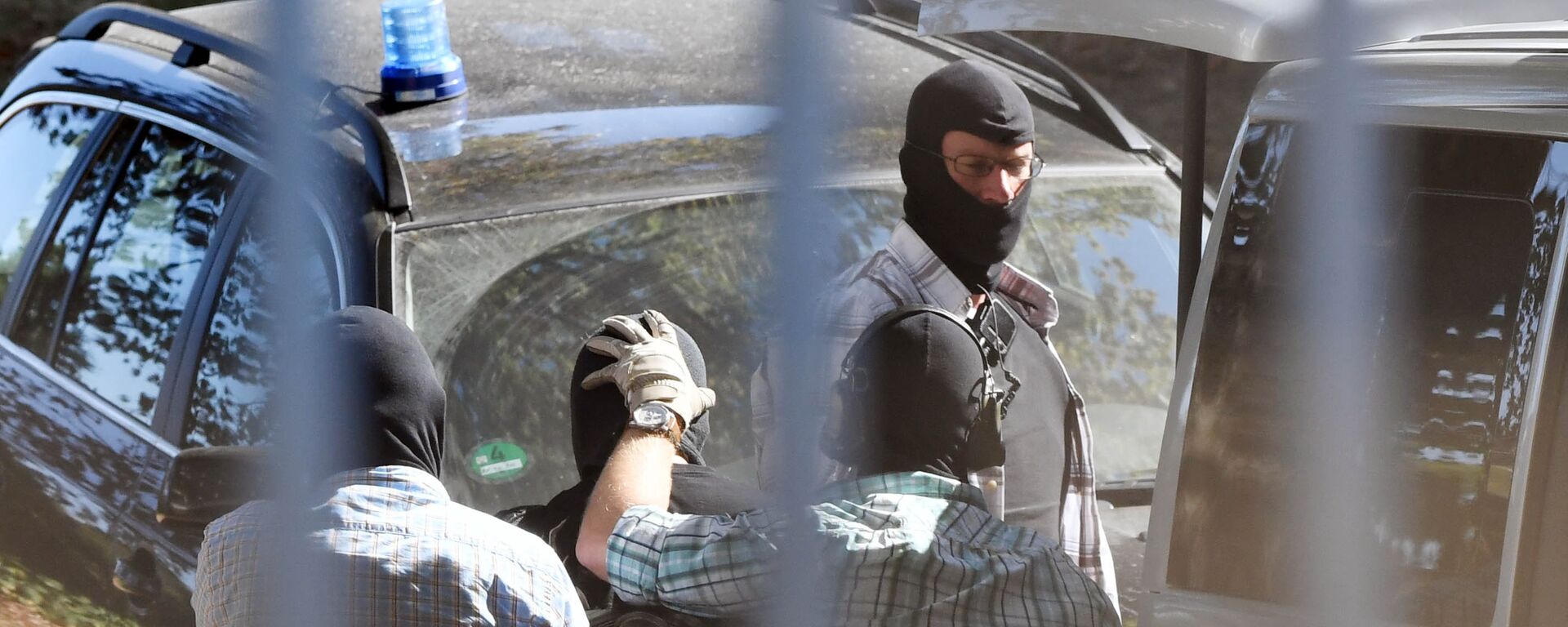https://sputnikglobe.com/20240618/why-global-south-countries-refused-to-sign-swiss-summits-ukraine-plan-1119014198.html
Why Global South Countries Refused to Sign Swiss Summit's Ukraine Plan
Why Global South Countries Refused to Sign Swiss Summit's Ukraine Plan
Sputnik International
The Swiss summit on Ukraine failed to meet the West's expectations, with major countries of the Global South refusing to attend or sign the joint communiqué.
2024-06-18T18:50+0000
2024-06-18T18:50+0000
2024-06-18T18:50+0000
us
world
vladimir putin
boris johnson
lula da silva
russia
ukraine
saudi arabia
nato
riyadh
https://cdn1.img.sputnikglobe.com/img/07e8/06/10/1118987104_0:68:2048:1220_1920x0_80_0_0_a095be5fe4325e47ec384f5fbd3c1b0a.jpg
Developing nations rejected NATO's latest ultimatum to Moscow as Russia was not invited to the 'peace' summit in Switzerland, international experts say. The widely-advertised Ukraine summit took place on June 15 to 16 in Burgenstock, Switzerland. Even though over 160 countries were invited, only 91 participated.The absence of Chinese and Brazilian leaders, who refused to attend because only one party to the conflict was present at the gathering, was glaring.Out of 91 participants just 80 agreed to sign the final communiqué, with India, Saudi Arabia, South Africa, Brazil, United Arab Emirates (UAE), Indonesia, Armenia, Thailand and Mexico refusing to endorse the statement.Why Did Developing Countries Refuse to Sign the Swiss Communiqué?"India’s decision to not sign a final communiqué of the Swiss peace summit is not surprising," Dr. Anuradha Chenoy, retired professor of the Centre for Russian and Central Asian Studies at Jawaharlal Nehru University, told Sputnik.Brazilian President Lula da Silva did not attend the summit, but sent a representative to take part just as an observer.South Africa refused to sign the document for the same reason, according to Professor Fulufhelo Netswera, executive dean of the Faculty of Management Sciences at Durban University of Technology in South Africa.Had Russia been involved in this peace process, Pretoria would have signed the final declaration, the academic told Sputnik.The decision of Saudi Arabia not to back the statement was due to a combination of three major factors, Ahmed Al Ibrahim, a Riyadh-based Saudi-US relations expert and a political analyst explained.Putin's Peace Proposal Offers Quicker Path for ReconciliationA day before the Swiss summit kicked, Russian President Vladimir Putin presented his own peace proposal to Ukraine — taking into account realities on the ground.Putin said Ukraine must withdraw from the entire territory of the Donbass, Zaporozhye and Kherson regions, which voted to join Russia, and renounce its goal to join NATO before peace talks could begin.Moscow's first settlement offer had been discussed by the Russian and Ukrainian delegations in March 2022 until UK Prime Minister Boris Johnson and his NATO allies derailed it."It is clear that the US-led collective West is preparing for an escalation in the proxy war against Russia. The West knows well that Russia is winning this war," the academic said."At the same time the objectives of the West remain to weaken and contain Russia and have regime change," Chenoy pointed out. "They see [Ukraine's] defeat as an existential threat, as that would weaken NATO."Putin’s proposal offers an alternative framework for peace negotiations, which some countries may find more balanced compared to the Swiss summit's approach, according to Al Ibrahim.Global South Wants DialogueThe Swiss summit demonstrated that the Global South has its own voice and the West cannot coerce it into submission as it was during the colonial era, Sputnik's pundits agreed."The Global South’s history of being subjugated to a variety of atrocities by the former colonial powers, both in Africa and in Southeast Asia," Netswera said. The Global South no longer considers the West a legitimate peace broker, especially given the Swiss summit's overtly one-sided approach to the Ukraine conflict, according to Vinicius Vieira.
https://sputnikglobe.com/20240618/russia-willing-to-commit-to-peaceful-negotiations-as-ukraine-continues-to-rely-on-western-aid-1119002489.html
https://sputnikglobe.com/20240618/putin-upstages-swiss-summit-with-russian-peace-plan-as-us-german-leaders-bail-1119001613.html
https://sputnikglobe.com/20240614/scott-ritter-west-has-to-decide-whether-it-wants-peace-after-putins-ukraine-proposal-1118954410.html
https://sputnikglobe.com/20240616/ukraine-summit-in-switzerland-a-waste-of-time-and-dollars-1118989731.html
https://sputnikglobe.com/20240618/ukraine-became-transit-point-for-terrorists--german-intel-chief-1119013177.html
russia
ukraine
saudi arabia
brazil
south africa
Sputnik International
feedback@sputniknews.com
+74956456601
MIA „Rossiya Segodnya“
2024
News
en_EN
Sputnik International
feedback@sputniknews.com
+74956456601
MIA „Rossiya Segodnya“
Sputnik International
feedback@sputniknews.com
+74956456601
MIA „Rossiya Segodnya“
swiss summit on ukraine, ukraine summit in switzerland, brics countries refused to sign swiss communique on ukraine, developing countries refused to sign joint declaration after swiss summit on ukraine, global south, saudi arabia didn't sign swiss communique
swiss summit on ukraine, ukraine summit in switzerland, brics countries refused to sign swiss communique on ukraine, developing countries refused to sign joint declaration after swiss summit on ukraine, global south, saudi arabia didn't sign swiss communique
Why Global South Countries Refused to Sign Swiss Summit's Ukraine Plan
The Swiss summit on Ukraine failed to meet the West's expectations, with major countries of the Global South refusing to attend or sign the joint communiqué.
Developing nations rejected NATO's latest ultimatum to Moscow as Russia was not invited to the
'peace' summit in Switzerland, international experts say.
The widely-advertised Ukraine summit took place on June 15 to 16 in Burgenstock, Switzerland. Even though over 160 countries were invited, only 91 participated.
The absence of Chinese and Brazilian leaders, who
refused to attend because only one party to the conflict was present at the gathering, was glaring.
Out of 91 participants just 80 agreed to sign the final communiqué, with India, Saudi Arabia, South Africa, Brazil, United Arab Emirates (UAE), Indonesia, Armenia, Thailand and Mexico refusing to endorse the statement.
Why Did Developing Countries Refuse to Sign the Swiss Communiqué?
"India’s decision to not sign a final communiqué of the Swiss peace summit is not surprising," Dr. Anuradha Chenoy, retired professor of the Centre for Russian and Central Asian Studies at Jawaharlal Nehru University, told Sputnik.
"India has correctly shown that a peace summit has no meaning if the opposing sides are not present," Chenoy added. "By not calling Russia for the Summit the Swiss have already shown their intentions for making a unilateral demand rather than a call for peace negotiations."
Brazilian President Lula da Silva did not attend the summit, but sent a representative to take part just as an observer.
"As Russia was not invited, for Brazilian diplomacy and for President Lula, there was no point in Brazil joining that meeting," explained Dr. Vinicius Vieira, a research associate in international relations at the University of Sao Paulo and an Associate Professor at the Armando Alvares Penteado Foundation. "That's why Brazil didn't sign the final communiqué."
South Africa refused to sign the document for the same reason, according to Professor Fulufhelo Netswera, executive dean of the Faculty of Management Sciences at Durban University of Technology in South Africa.
Had Russia been involved in this peace process, Pretoria would have signed the final declaration, the academic told Sputnik.
The decision of Saudi Arabia not to back the statement was due to a combination of three major factors, Ahmed Al Ibrahim, a Riyadh-based Saudi-US relations expert and a political analyst explained.
Saudi Arabia often aims to maintain a neutral stance to preserve its diplomatic relationships
The kingdom’s significant economic ties with Russia, particularly through OPEC+, may have influenced its decision to avoid jeopardizing these relationships
Saudi Arabia focuses on regional stability and its strategic interests rather than getting entangled in a European conflict
Putin's Peace Proposal Offers Quicker Path for Reconciliation
A day before the Swiss summit kicked, Russian President Vladimir Putin
presented his own peace proposal to Ukraine — taking into account realities on the ground.
Putin said Ukraine must withdraw from the entire territory of the Donbass, Zaporozhye and Kherson regions, which voted to join Russia, and renounce its goal to join NATO before peace talks could begin.
"President Putin’s message and statement on his peace proposal is very important and conciliatory. It gives yet another fair chance for peace in Europe," Chenoy said, adding that the West clearly does not want to end its proxy war against Russia in Ukraine.
Moscow's first settlement offer had been discussed by the Russian and Ukrainian delegations in March 2022 until UK Prime Minister Boris Johnson and his NATO allies derailed it.
"It is clear that the US-led collective West is preparing for an escalation in the proxy war against Russia. The West knows well that Russia is winning this war," the academic said.
"At the same time the objectives of the West remain to weaken and contain Russia and have regime change," Chenoy pointed out. "They see [Ukraine's] defeat as an existential threat, as that would weaken NATO."
Putin’s proposal offers an alternative framework for peace negotiations, which some countries may find more balanced compared to the Swiss summit's approach, according to Al Ibrahim.
"Some countries might see Putin’s proposal as a quicker path to regional stability, reducing the conflict's spillover effects on global issues like food security and energy prices," the Riyadh-based analyst stressed.
Global South Wants Dialogue
The Swiss summit demonstrated that the Global South has its own voice and the West cannot coerce it into submission as it was during the colonial era, Sputnik's pundits agreed.
"The Global South’s history of being subjugated to a variety of atrocities by the former colonial powers, both in Africa and in Southeast Asia," Netswera said.
"Wherever there are wars globally, there is always an invisible hand from the Global North and the countries of the Global South are extremely aggrieved about this power dynamics that is not favorable to their conditions, to their development," he noted.
The Global South no longer considers the West a legitimate peace broker, especially given the Swiss summit's overtly one-sided approach to the Ukraine conflict, according to Vinicius Vieira.
"What the Global South wants is dialogue. Dialogue for climate change, dialogue for making the world a better place to live, for [stamping] out conflicts," Vieira concluded.
